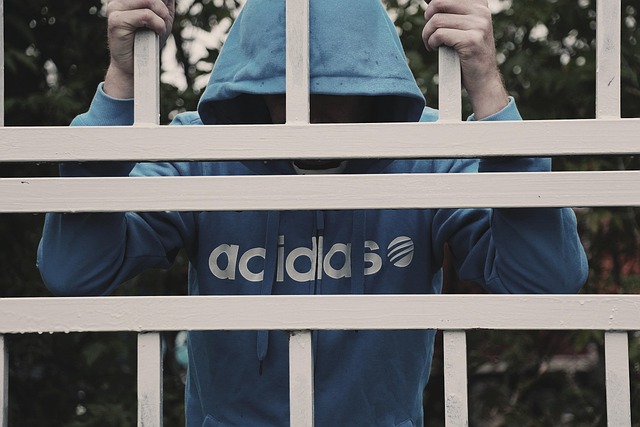Millennial DUI Awareness Campaigns target young adults (born 1981-1996) by educating them about the severe consequences of driving under the influence, including vehicle impoundment. These campaigns leverage modern communication and peer support to reduce DUI incidents, promote responsible drinking, and aid in releasing vehicles from impoundment. By participating, building a support system, keeping records up-to-date, and staying informed on local laws, Millennials can navigate these challenges effectively. The campaigns' success is proven through case studies like Sarah's and Michael's, demonstrating their ability to transform lives and reduce public health risks associated with impaired driving.
In the crosshairs of stringent DUI laws, millennial drivers often find themselves facing not only legal repercussions but also the additional stress of impounded vehicles. This article delves into the intricate world of impounded cars and DUI releases, exploring key strategies for securing freedom from storage facilities. We dissect the impact of DUI on millennials and examine the pivotal role of awareness campaigns in prevention efforts. Through real-life case studies, we illuminate successful release stories, offering valuable insights for those navigating this challenging landscape.
- Understanding Impounded Vehicles and DUI Laws
- The Impact of DUI on Millennial Drivers
- Strategies for Securing Release from Impoundment
- Role of Awareness Campaigns in DUI Prevention
- Case Studies: Successful DUI Release Stories
Understanding Impounded Vehicles and DUI Laws

Impounded vehicles are a common consequence of driving under the influence (DUI). When law enforcement officials pull over a driver suspected of DUI, they may impound the vehicle to ensure public safety and prevent further reckless driving. This process involves towing the vehicle to a designated lot or storage facility, where it remains until the legal owner addresses any outstanding issues.
Understanding these laws is crucial for individuals, especially millennials who are often targeted by DUI awareness campaigns. Millennials, born between 1981 and 1996, face unique challenges when it comes to DUI penalties due to their age and lifestyle choices. Various state-level Millennial DUI Awareness Campaigns have been initiated to educate young adults about the severe consequences of impaired driving, including potential vehicle impoundment and prolonged license suspension.
The Impact of DUI on Millennial Drivers

Millennials, typically defined as those born between 1981 and 1996, face unique challenges when it comes to DUI (Driving Under the Influence) incidents. This demographic’s involvement in drunk driving has significant implications, especially given their status as a pivotal generation in shaping future societal norms. With access to technology and social media, Millennials are often exposed to various influences that can impact their decision-making, including drinking and driving.
Millennial DUI Awareness Campaigns play a crucial role in educating this age group about the dangers of impaired driving. These campaigns utilize modern communication channels to reach young drivers, addressing the issue through engaging content and peer support. By targeting Millennials, these initiatives aim to reduce the number of impounded vehicles due to DUI charges, as well as foster a culture of responsible drinking and safe transportation alternatives.
Strategies for Securing Release from Impoundment

Securing release from impoundment after a DUI (Driving Under the Influence) arrest can be a challenging process, especially for younger drivers, often referred to as millennials. One effective strategy is to demonstrate active participation in Millennial DUI Awareness Campaigns. These campaigns are designed to educate and promote responsible driving among young adults, and involvement can show authorities your commitment to making better choices. Additionally, having a solid support system in place can be invaluable. Friends or family members who can vouch for your character and promise future responsible behavior may assist in facilitating your vehicle’s release.
Another practical step is to ensure all necessary documentation is up-to-date and readily available. This includes proof of insurance, registration, and any court orders or permits related to the impoundment. Being well-prepared and organized can streamline the process and potentially speed up the release of your vehicle. It’s also beneficial to stay informed about local laws and regulations regarding DUI impounds, as these can vary from region to region.
Role of Awareness Campaigns in DUI Prevention

Millennial DUI Awareness campaigns play a pivotal role in preventing driving under the influence, targeting one of the most at-risk demographics. Through social media, interactive events, and community outreach, these campaigns reach young adults with powerful messages emphasizing the devastating consequences of impaired driving. By highlighting real-life stories and using data to illustrate the risks, they foster a culture of responsibility and safety.
Such initiatives not only raise awareness but also equip millennials with crucial decision-making skills, encouraging them to make safe choices when socializing. This proactive approach helps reduce impounded vehicles related to DUI incidents, as well as the broader public health impact of alcohol-impaired driving.
Case Studies: Successful DUI Release Stories

In the realm of Millennial DUI Awareness Campaigns, numerous success stories have emerged, offering hope and guidance to those facing impoundment after a DUI arrest. These case studies highlight the impact of proactive initiatives aimed at educating young adults about the dangers of impaired driving. One such story involves Sarah, a recent college graduate who found herself in a challenging situation following her first DUI. With the help of a local non-profit organization dedicated to Millennial DUI Awareness, she successfully completed a rehabilitation program and was able to secure the release of her impounded vehicle. This support system provided her with the resources needed to turn her life around, demonstrating the positive outcomes that can result from targeted interventions.
Another inspiring example is that of Michael, a young professional who, after a night out with friends, made a critical decision that changed his trajectory. Impounded following a DUI arrest, he reached out to a community-based program focused on helping Millennials avoid similar fates. Through their assistance, Michael enrolled in a defensive driving course and participated in group therapy sessions. As a result, not only was his vehicle released, but he also gained valuable insights into responsible drinking and personal growth, transforming his perspective on risk-taking behaviors. These case studies underscore the significance of Millennial DUI Awareness Campaigns in making a real difference in individuals’ lives, empowering them to make better choices and navigate challenging circumstances.
Millennial drivers facing DUI charges can find hope and support through understanding their rights and leveraging available resources. By combining increased awareness from targeted campaigns and strategic actions, such as securing proper legal counsel and utilizing impounded vehicle release services, Millennials can navigate the challenges of a DUI conviction more effectively. These steps not only help in the immediate release of vehicles impounded due to DUI but also contribute to broader efforts in preventing future incidents through education and advocacy.






